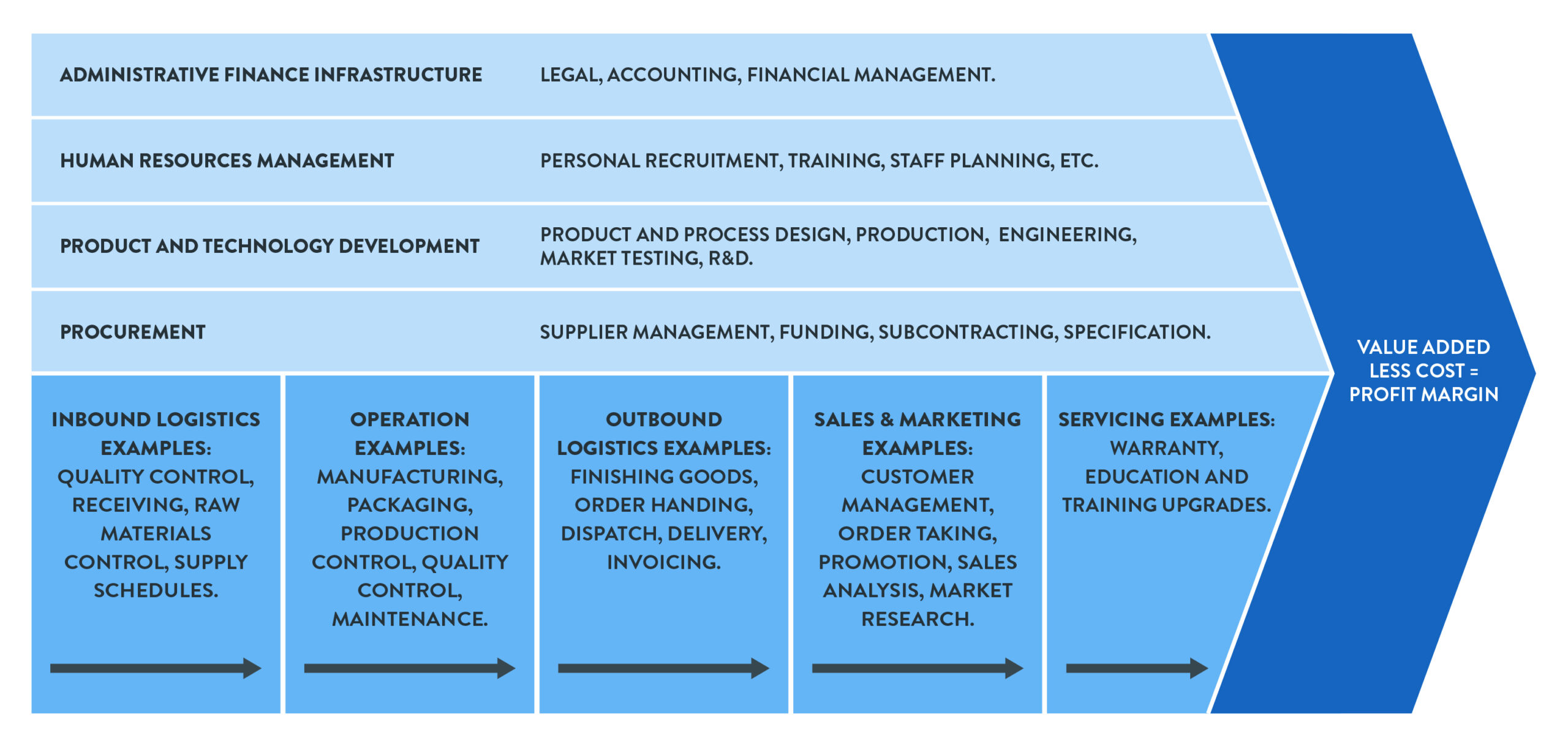IT significantly boosts accounting firm productivity by automating tasks and improving accuracy. It enables faster data processing and better client communication.
Accounting firms benefit immensely from integrating IT into their operations. Automation reduces the time spent on repetitive tasks, allowing accountants to focus on more strategic activities. Advanced software solutions enhance data accuracy, minimizing errors and improving financial reporting. Cloud-based platforms facilitate seamless collaboration, enabling real-time updates and efficient client communication.
These technological advancements streamline workflows and increase overall efficiency. Firms can handle larger client bases with the same resources, ultimately driving growth and profitability. Embracing IT is essential for accounting firms aiming to stay competitive and deliver superior services in today’s fast-paced business environment.
Role Of It In Modern Accounting
Information Technology (IT) has transformed the accounting industry. Modern accounting firms rely heavily on IT to enhance productivity, accuracy, and efficiency. IT tools and software streamline complex tasks, making them faster and more reliable. This shift has reshaped traditional accounting practices.
Tech Evolution
The evolution of technology has been a game-changer for accounting. In the past, accountants used paper ledgers and manual calculations. Today, sophisticated software handles these tasks with precision. Cloud computing allows accountants to access data anytime, anywhere. This flexibility boosts productivity and ensures timely decision-making.
Artificial Intelligence (AI) and Machine Learning (ML) are revolutionizing accounting. These technologies automate repetitive tasks, reducing human error. They also provide insights through data analysis, helping firms make informed decisions.
Current Trends
Several trends are shaping the role of IT in accounting. One major trend is the use of Blockchain technology. Blockchain ensures secure and transparent transactions. This technology enhances data integrity and reduces fraud risk.
Another trend is the adoption of Robotic Process Automation (RPA). RPA automates routine tasks, freeing up accountants for strategic work. This increases efficiency and reduces operational costs.
| Trend | Impact |
|---|---|
| Cloud Computing | Access data anytime, anywhere |
| AI and ML | Automate tasks, reduce errors |
| Blockchain | Ensure secure transactions |
| RPA | Free up time for strategic work |
In summary, IT plays a crucial role in modern accounting. It enhances productivity, accuracy, and security. Embracing these technologies is essential for staying competitive in today’s fast-paced world.
Streamlining Financial Processes
Technology transforms accounting firms. It boosts productivity and streamlines processes. Using tech tools, firms handle complex tasks faster. This section explores how technology improves financial processes.
Automation Benefits
Automation reduces manual tasks. It saves time and money. Automated systems handle repetitive jobs. Accountants focus on strategic tasks instead.
- Time-saving: Automated tools finish tasks quickly.
- Cost-effective: Less human labor means lower costs.
- Consistency: Machines perform tasks the same way every time.
Robotic Process Automation (RPA) is popular. It handles data entry and analysis. Accountants use RPA to streamline workflows.
Error Reduction
Manual tasks often lead to errors. Tech tools reduce these mistakes. Accuracy improves with automation. Accountants trust results more.
Here is a table showing the impact of automation on errors:
| Task | Manual Error Rate | Automated Error Rate |
|---|---|---|
| Data Entry | 5% | 0.1% |
| Invoice Processing | 3% | 0.2% |
| Financial Reporting | 2% | 0.05% |
Accountants use software for precise calculations. It ensures financial reports are accurate. Reduced errors lead to better decisions.
Enhanced Data Management
Enhanced data management is revolutionizing accounting firm productivity. Firms now handle data more efficiently and accurately.
Real-time Access
Real-time access to data allows accountants to make quick decisions. This leads to faster and more accurate reporting. The ability to access data from anywhere also adds flexibility.
With real-time access, firms can:
- Monitor cash flow instantly
- Track expenses in real-time
- Provide immediate client updates
This ensures that accountants can provide the best service possible.
Cloud Solutions
Cloud solutions offer multiple benefits for accounting firms. They provide secure data storage and easy access. Cloud-based systems reduce the need for physical storage space.
Key benefits of cloud solutions include:
| Benefit | Description |
|---|---|
| Cost Savings | Lower hardware and maintenance costs |
| Scalability | Easy to scale up or down as needed |
| Security | Enhanced data protection and backup |
Cloud solutions also facilitate collaboration. Team members can work on the same files simultaneously. This improves teamwork and efficiency.
Enhanced data management through real-time access and cloud solutions significantly boosts productivity.

Credit: base22.com
Improving Client Communication
Effective communication is key to the success of any accounting firm. Technology has revolutionized how accounting firms interact with their clients. Digital tools enhance the speed and clarity of communication. This boosts productivity and client satisfaction.
Digital Platforms
Digital platforms streamline the communication process. Accounting firms use email, messaging apps, and video calls. These tools enable quick and efficient exchanges.
Video calls allow for face-to-face meetings without travel. Messaging apps facilitate real-time conversations. Email provides a formal channel for detailed information. These platforms improve the overall communication experience.
Here are some popular digital platforms used in accounting:
- Zoom – For video conferencing
- Slack – For real-time messaging
- Microsoft Teams – For collaboration and communication
- Email – For formal communication
Client Portals
Client portals offer a secure space for document sharing and communication. They are essential for maintaining confidentiality and efficiency.
Benefits of client portals:
- Secure document storage and sharing
- Easy access to important files
- Streamlined communication channels
- Improved client satisfaction
A well-designed client portal enhances transparency and trust. Clients can upload documents, track progress, and communicate with their accountants. This reduces the need for frequent in-person meetings and phone calls.
Here is a simple comparison table of popular client portals:
| Client Portal | Key Features |
|---|---|
| Intuit Link | Secure file sharing, progress tracking |
| Xero HQ | Client management, document storage |
| Karbon | Workflow management, team collaboration |
Using digital platforms and client portals improves communication. This leads to enhanced productivity and client satisfaction. Accounting firms should embrace these technologies.
Cost Efficiency And Savings
Implementing IT solutions can greatly boost an accounting firm’s productivity. Cost efficiency and savings are two key benefits. By using technology, firms can cut down on various expenses. This section explores the impact of IT on operational costs and resource allocation.
Operational Costs
IT solutions can lower operational costs significantly. Automating tasks reduces the need for manual labor. This means fewer employees are required, cutting down on salaries and benefits.
Cloud storage eliminates the need for physical storage space. This saves on rent and utility costs. Software tools streamline processes, reducing the need for paper and printing. Here is a table showing potential savings:
| Cost Item | Traditional Method | Using IT |
|---|---|---|
| Employee Salaries | $100,000 | $70,000 |
| Physical Storage | $5,000 | $1,000 |
| Paper and Printing | $2,000 | $500 |
Resource Allocation
Resource allocation becomes more efficient with IT. Automated tools handle repetitive tasks. This frees up employees to focus on more complex work.
IT systems provide real-time data. This helps managers make informed decisions quickly. Efficient resource allocation leads to higher productivity and lower costs.
- Automated invoicing
- Real-time financial tracking
- Remote work capabilities
Investing in IT solutions is a smart move for accounting firms. The benefits of cost efficiency and resource allocation are clear.
Security And Compliance
The impact of IT on accounting firm productivity is profound. Security and compliance are crucial for maintaining trust and efficiency. Firms must protect data and adhere to regulations.
Data Protection
Protecting client data is vital. Accounting firms handle sensitive financial information. Ensuring this data is secure is a top priority. Implementing robust cybersecurity measures helps prevent breaches. Firms use encryption to safeguard data. Regular security audits identify vulnerabilities. These audits ensure systems remain secure.
Training staff on security protocols is essential. Well-informed employees are less likely to make mistakes. Firms often use multi-factor authentication for added security. This reduces the risk of unauthorized access. Keeping software updated is also crucial. Updates often include important security patches.
Regulatory Standards
Adhering to regulatory standards is mandatory. Different regions have varying regulations. Accounting firms must stay updated on these standards. Non-compliance can lead to severe penalties. Firms often use compliance software to track regulations. This software helps ensure all practices are up to date.
Creating a compliance checklist is helpful. This checklist includes all relevant regulations. Firms can use it to ensure they meet all requirements. Regularly reviewing and updating this checklist is important. Compliance officers play a key role in this process. They ensure the firm adheres to all standards.
| Key Security Measures | Benefits |
|---|---|
| Encryption | Protects data from unauthorized access |
| Multi-Factor Authentication | Enhances login security |
| Regular Security Audits | Identifies and fixes vulnerabilities |
- Encryption: Keeps data safe from breaches.
- Multi-Factor Authentication: Adds a layer of security.
- Regular Security Audits: Ensures system integrity.
- Train staff on security protocols.
- Use compliance software to track regulations.
- Regularly review and update security measures.
Training And Skill Development
Training and Skill Development are critical for accounting firms leveraging IT to boost productivity. As technology evolves, continuous learning and adapting to change become essential for staying competitive and efficient.
Continuous Learning
Accounting professionals must engage in continuous learning to stay updated with new software and tools. Regular training sessions help staff master the latest accounting technologies. This approach ensures they can handle complex tasks more efficiently.
Firms can adopt various methods for continuous learning:
- Online courses and webinars
- Workshops and seminars
- Mentorship programs
- In-house training sessions
By promoting a culture of continuous learning, firms can improve overall productivity and reduce errors in accounting processes.
Adapting To Change
Technological advancements require firms to adapt quickly. Employees should be open to learning new systems and processes. This adaptability is crucial for maintaining high productivity levels.
Key strategies for adapting to change include:
- Encouraging a growth mindset among staff
- Providing regular updates on new technologies
- Implementing change management strategies
- Offering support and resources during transitions
By focusing on training and skill development, accounting firms can effectively leverage IT. This leads to increased efficiency, accuracy, and overall business success.

Credit: www.researchgate.net
Future Of It In Accounting
Information Technology (IT) continues to transform the accounting industry. IT tools help accounting firms improve productivity and accuracy. The future of IT in accounting looks very promising.
Emerging Technologies
New technologies are shaping the future of accounting. Artificial Intelligence (AI) and Machine Learning (ML) can automate many tasks. These tools help accountants focus on more complex jobs.
Blockchain technology is another game-changer. It ensures secure and transparent transactions. This reduces the chances of fraud and errors.
Cloud Computing allows firms to store data safely. Accountants can access data from anywhere. This makes collaboration easier and faster.
Long-term Outlook
IT will continue to evolve in the accounting field. Automation will become more advanced. This will free up time for accountants to offer strategic advice.
Data Analytics will play a big role. Firms will use data to make informed decisions. This will improve client satisfaction and business growth.
The future will also see more cybersecurity measures. Protecting client data will be a top priority. Firms will invest in advanced security systems.
| Technology | Impact |
|---|---|
| Artificial Intelligence | Automates repetitive tasks |
| Blockchain | Ensures secure transactions |
| Cloud Computing | Enables remote work |
| Data Analytics | Improves decision-making |
| Cybersecurity | Protects client data |
The future of IT in accounting is exciting. Emerging technologies will make accounting more efficient. Firms will be able to serve clients better and grow their business.

Credit: www.semanticscholar.org
Frequently Asked Questions
How Does It Improve Accounting Firm Productivity?
IT streamlines processes and automates repetitive tasks, reducing manual effort. This leads to faster, more accurate financial reporting. Enhanced communication tools also improve client interactions.
What It Tools Are Essential For Accountants?
Accounting software, cloud storage, and cybersecurity tools are essential. These tools enhance efficiency, security, and accessibility. They also support remote work and collaboration.
Can It Reduce Errors In Accounting?
Yes, IT minimizes human error through automation and real-time data validation. This ensures more accurate financial statements. It also enhances data consistency across all records.
How Does Cloud Computing Benefit Accounting Firms?
Cloud computing offers remote access to data and software. This enables flexible work environments. It also ensures data security and disaster recovery.
Conclusion
Technology significantly boosts accounting firm productivity. Automation reduces errors and saves time, allowing accountants to focus on strategic tasks. Cloud computing enhances collaboration and data accessibility. Embracing IT solutions is essential for staying competitive and efficient in the accounting industry.
Firms leveraging technology will see increased productivity and client satisfaction.








